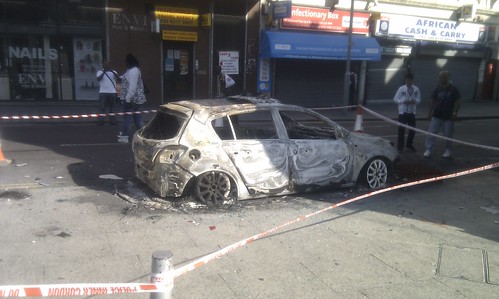Morning all.
This weekend I'm down at the Simulator in Gatwick. Scary thought, I've been in CityFlyer long enough to warrant my first 6-monthly check. I know that the check is on the early end of the window they have to get my check done and so it's not quite been six months. Regardless, I've really been flying long enough to have my first of many recurrent checks.
There are two kinds of recurrent checks - the Line Operating Proficency Check (LPC) and the Operator's Proficiency Check (OPC). The difference is fairly marked between the two:
The LPC is the full whack and covers everything you need to do to revalidate the Instrument Rating on your licence. This means it includes manually-flown single-engine approaches and go-arounds, EFATO (Engine Failure at TakeOff) and a couple of other bits aside - as well as covering some 'Three-yearly' items - like Rapid Descent drills, for example - things that need to be ticked off at least one every three years. At the end of the LPC paperwork gets sent off the the CAA and your licence gets signed off for another year of blasting around the continent/world in a fancy jet.
The OPC is a less intense affair, it's a check by the operator (in this case, BA CityFlyer) that you can still operate to company SOP's (Standard Operating Procedures). It involves an almost identical profile to the LPC with the exception that you can handle any situation as you would in real life - so the autopilot is always available and you can use all the wonderful gadgets and gizmos that the aircraft has to make your life easier. That said, it's still hard work and you still have to cope with a failure at takeoff or a rejected takeofff (and for added difficulty, we do these out of London City).
So, yesterday a Captain and I hopped in a hire car at City and drove down to Gatwick to undergo the above battery. His LPC, my OPC. Firstly, I have a damm fine captain for these details and so the nerves weren't such a problem as they might have been. We turn up at the Simulator building about 90 minutes ahead of time, giving us plenty of time to brief and discuss the details.
One thing I will say now is that if I power up the aircraft and the batteries are reading 21.2v I -will- go and get the manual and double-check the figures, but the minimum voltage is 22v, and if it's still above 21v you can recharge from any AC source (below 21v it's an engineering thing). I did not know this when asked. Great start there, Mike.
So, we were given a couple of 'standard' sectors to plan and associated weather to discuss and then it's off into the simulator box.
The sim is a very accurate mock-up of the flight deck of a E190, so it's very easy to slip into the roleplay. Started the engines, we were given a hot-start on #1 (temperatures sky-rocket and you have to abort the start) which we handled well enough then we were off.
Now, at this point I'd like to stress that on a check you are always,
always, going to get either a rejected take-off or an engine failure. ALWAYS.
Why then, is it always such a damm surprise? We simulated flying through a flock of birds, with engine #2 ingesting a couple and failing. Fine. The E-Jet is a real, real pig on one engine and this wasn't helped by the fact that I mis-identified the swing and used the wrong rudder to counteract the failed engine.
We didn't crash.
We did have a bit of a rollercoaster ride with speed too low and a bank-angle warning just for kicks. As a result we missed the right turn on the departure and got a terrain warning because of Canary Wharf. Good start, guys, good start. The rest of the flight involved tidying up the aircraft, completing all the emergency drills and diverting to Birmingham. Where the weather was crap resulting in a go-around and subisquent divert to Manchester. Where the Radar and ILS were down so it was a procedural approach to a good-old non-precision (VOR) approach. All the time managing a failed engine and the associated fuel balance problems.
The second sector was much the same, only leaving from Southampton, engine fire on takeoff, try to return, weather terrible, divert to Gatwick, go-around and then back to Southamption for the non-precision VOR approach.
Word of warning, guys. That aproach is NOT in the FMS. I know there are some approaches in there that look like they're it, but they're not. Check very, very carefully the tracks outbound and distances because the VOR approach you'll be asked to fly isn't in the box.
Two options, build it using the radial/distance cues on the plate and then get the automatics to fly it. Actually, don't do this as this falls under 'constructing an Approach' which is a big faux pas in the FMS world. Second (and only really) is to fly it old-school, tracking the VOR needles to a set distance and then making your turn inbound. It sounds like more effort, but actually tracking outbound in a jet like the Embraer is a doddle, so I'd recommend that approach.
If you hadn't already guessed, we convinced ourselves that the approach we found in the box was the approach on the plate and hence in a calm, considered and carefully planned manner we flew completely the wrong track outbound and overshot our inbound track by miles, delaying our descent and making the whole thing just look and feel messy. So much so that after the detail we went back and did it properly.
Anyway, landed. Then we have to go back and quickly look that the things we needed to re-try. So it was back to City to perfect the EFATO (had two goes, both now nicely within limits), then off to Southamption to complete that annoying VOR approach properly.
Check Complete.
A debrief follows with learning points that I partly mention above, but since there's two of us on test at all times I can't really go into all the details here. Nothing terribly major though, and we're all set for the LPC today. The pressure's slightly off me as this is his check but, as ever, the whole exercise is multi-crew so I've still got to perform.
Right, that's enough on here from me. I'm off for a swim before hitting the books. Simulator fun starts at 2pm, Wish me luck!
tl:dr: I still has job!


